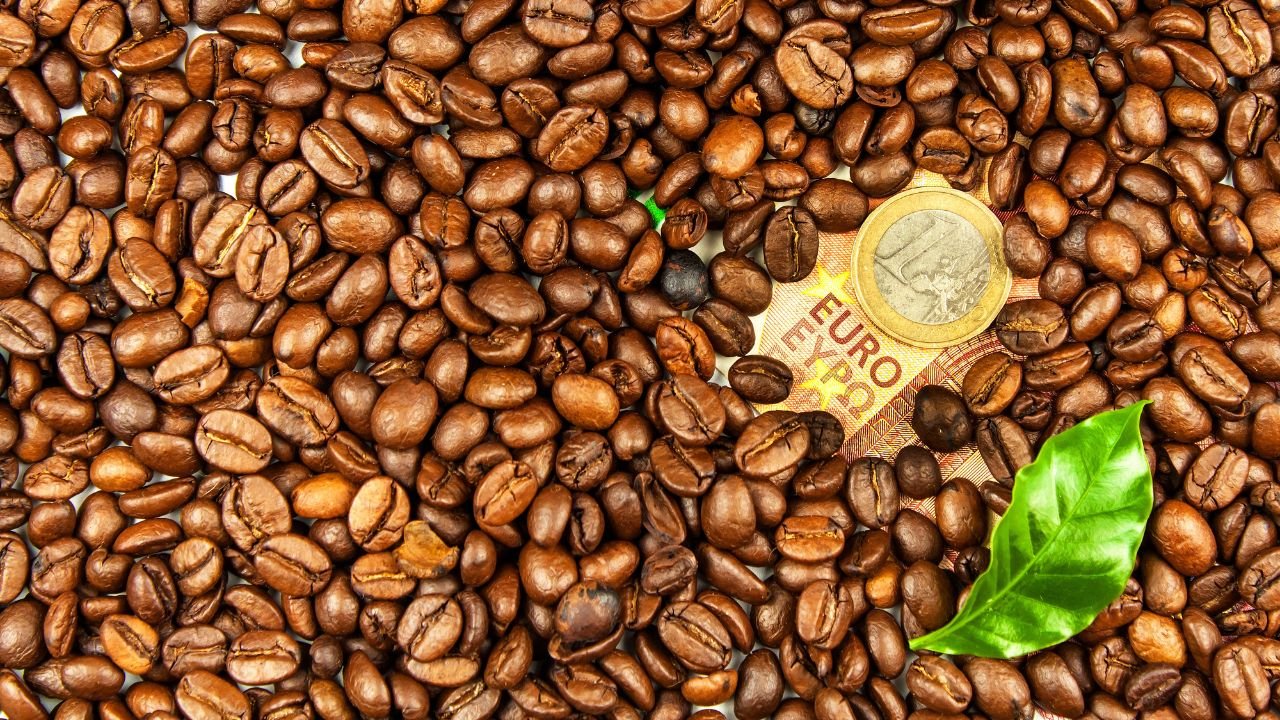C Market Coffee: The Economics Behind Your Daily Cup of Joe

Your cup of coffee holds more importance than just the flavor, aroma, and kick. Coffee is an important global commodity that earns its trade market. The C Market coffee trade is the center of global coffee commerce, where commodity exchange happens under international trade regulations.
Any discussions about the C Market should be interesting if you have a coffee business or read trade news in general. International Coffee Organization even creates monthly and annual market reports on global coffee prices, which are precious analytical tools for business owners and traders.
What is C Market Coffee?
The C Market refers to a global commodity exchange focusing on coffee and its prices. The exchange center operates like all commodity trade centers, such as gold, oil, wheat, and sugar. The coffee bean types that are traded in this market are Arabica.
The “C” in the name does not refer to “coffee” but “central”. Arabica coffee used to be traded globally in a “U (Universal) Market”. It was changed into C Market around 1968 or 1969 because coffee producers from Central America looked to distinguish the prices of their commodities.
How is Coffee Traded in the Market?

There are four ways to trade C Market coffee. They are:
1. Coffee Futures
Futures are the most standard methods to trade coffee. You and other parties exchange specific quantities of coffee using a predetermined price and date.
2. Coffee Options
Options are similar to futures, but buyers are not obligated to purchase at a determined date and price. It is a better trading method if you are worried about price volatility.
3. ETF
Coffee ETF (exchange-traded fund) is a specific investment fund that allows buyers to track market performances. The funds can be traded at the securities exchange, exposing buyers to fewer risks than coffee futures.
4. Company Stocks
You can invest in the stocks of the “Big Four,”; international coffee companies that buy 50 percent of all the coffee in the market. They are Kraft, Nestle, Procter & Gamble, and Sara Lee.
Traders must rely on specific rules when trading coffee at the C Market. For example, each coffee type must come from one of the countries in the trade list, with the best conditions and free of aged or unwashed flavors. Any contracts in futures and options must not exceed 60 months (including the current month).
C Market Coffee Trend and Implication

The coffee trend at the C Market is affected by various factors, such as climate, weather, and global-scale situation, such as the pandemic. The post-pandemic situation and other recent factors have affected the C Market coffee trend, with large-scale implications.
The current trend is affected by Brazil, the leading coffee producer at the C Market. Before COVID, Brazil contributed to 40 percent of the global coffee trade. Brazil’s pandemic, extreme drought and frost, and logistic challenges have lowered Brazil’s coffee production. It, in turn, affected the prices at the C Market.
Despite the challenges, coffee is still in high demand in the commodity market. Traders only need to be smarter and more budget-conscious when making their options. For example, traders need to have more detailed calculations in their budgeting. Traders must also have more flexible financial strategies to anticipate price volatility.
Coffee Farmers and C Market Coffee
Coffee farmers get benefits from C Market coffee’s policy on price. Since it creates the price benchmark, farmers can use the information to get better commodity offers.
However, C Market countries’ conditions can affect coffee farmers’ conditions. For example, Brazil’s recent climate-remated disadvantages and global pandemic have greatly impacted coffee farmers. Farmers in Brazil received the impact of the fall in coffee prices.
Many producers and land-owning farmers have decided to focus on specialty coffee to reduce the negative impact. It is because specialty beans often receive premium price labels compared to regular commodities.
Also Read: Specialty vs Commercial Coffee: Which One is Right for You?
Does C Market Coffee Affect Coffee Prices?

Coffee is one of the most popular commodities in the world. Commodity markets need to enforce specific rules and regulations to ensure smooth trading. It includes determining the right prices.
C Market coffee has an important role in determining global coffee prices. It creates a benchmark for global traders, producers, and business owners to determine the best prices. C Market’s price and trading regulations also ensure that the global coffee market always has high liquidity.
Are There Other Coffee Markets?
C Market is the center of the global coffee trade, but it is not the only coffee market in the world.
Since it focuses on Arabica beans, traders interested in Robusta should look for other alternatives. ICE Futures Europe, for example, is an intercontinental exchange market for various commodities and products, including Robusta beans.
Tokyo Grain Exchange also offers options, futures, and other trade products in commodities, including coffee. Meanwhile, Brazilian Mercantile and Future Exchanges is one of the largest exchange centers in the world, where coffee is one of the most popular commodities.
C Market coffee is not the only precious commodity to support your business. You can also buy high-quality coffee beans from wholesale suppliers in coffee-producing countries like Indonesia especially products Indonesia specialty coffee . FnB is an Indonesian coffee bean supplier and wholesale green coffee bean seller, a perfect partner for your coffee business. Contact FnB to get your high-quality coffee beans supplier and participate in the successful coffee business world.



